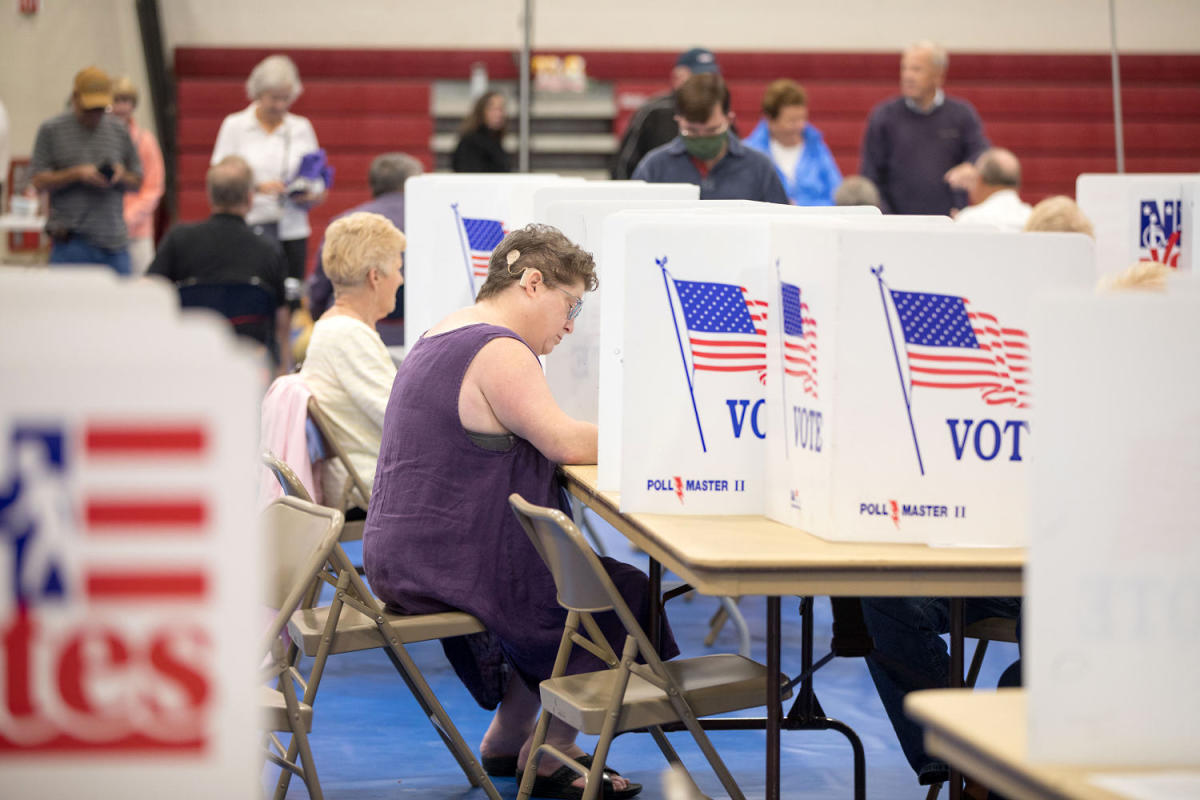Voters in New Hampshire will head to the polls Tuesday for the first-in-the-nation primaries. While former President Donald Trump and former United Nations Ambassador Nikki Haley are campaigning head-to-head in the closing days, other GOP candidates who have recently dropped out, including Florida Gov. Ron DeSantis and former New Jersey Gov. Chris Christie, will still be on the ballot.
On the other side of the aisle, national Democrats have opted to start their nominating process in South Carolina in February. New Hampshire Democrats are still holding a primary contest on Tuesday, but President Joe Biden won’t be on the ballot, and the Democratic National Committee is not recognizing the primary.
On Friday, Secretary of State David Scanlan predicted high turnout for the Republican primary, estimating it would be north of 320,000. But he predicted low participation on the Democratic side, estimating that just 88,000 voters will cast ballots.
When do polls open and close on Tuesday?
Per state law, all polls must open no later than 11 a.m. ET and close no earlier than 7 p.m. ET. But different localities can decide to open polls earlier or keep them open later. In many jurisdictions across the state, polls are open from 7 a.m. ET to 7 p.m. ET.
Residents of one tiny town, Dixville Notch, will cast their ballots starting at 12 a.m. ET. WMUR reports that all six of the town’s registered voters are expected to be at the polls at midnight.
Candidates on the Republican primary ballot include Trump, Haley and a slew of other candidates who suspended their campaigns after the filing deadline, including DeSantis, tech entrepreneur Vivek Ramaswamy and Christie, who focused his campaign almost entirely on the Granite State. South Carolina Sen. Tim Scott, North Dakota Gov. Doug Burgum and former Vice President Mike Pence will also appear on the ballot.
Why isn’t President Joe Biden on the Democratic ballot?
On the Democratic side, Rep. Dean Phillips of Minnesota, author Marianne Williamson and 19 others will appear on the ballot. Biden will not be one of them.
He’s not on the ballot in New Hampshire because the state did not comply with Democratic National Committee rules about the primary order that required the state to push its primary date back. Holding the nonparty-sanctioned primary on Tuesday instead of later will cost the state delegates to this summer’s Democratic convention.
But Biden supporters have organized a write-in campaign encouraging voters to write the president’s name on the ballot. The DNC and the Biden campaign have no involvement in the movement to write in Biden’s name for the primary.
Why are New Hampshire’s primaries so early?
State law in New Hampshire requires that the secretary of state pick a date for the presidential primary that is at least a week ahead of any “similar election” — in this case, another presidential primary.
In November, Scanlan announced that New Hampshire’s primary would be held on Jan. 23, one week after Iowa’s caucuses and 11 days before South Carolina’s Democratic presidential primary.
Who can vote?
Registered Republicans and “undeclared” voters may vote in the New Hampshire presidential primary. Voters who are registered with a party must vote in that party’s primary. Undeclared voters can choose either a Democratic or a Republican ballot at their polling place. After choosing that party’s ballot on Jan. 23, voters will become registered members of that party unless they specifically fill out a form confirming that they want to return to “undeclared” status.
Some (former) Democrats can participate in the GOP primary — if they changed their party affiliation to either Republican or undeclared last year. The deadline to change party affiliation for the 2024 primary was Oct. 6, 2023.
Are there a lot of ‘undeclared’ voters?
Yes. In fact, they outnumber both registered Democrats and registered Republicans.
On Friday, the secretary of state’s office released updated registration numbers, showing that 39% of voters are undeclared (344,335), 31% are registered Republicans (267,768), and 30% are registered Democrats (261,254).
What about early voting?
New Hampshire does not allow in-person early voting or no-excuse absentee voting.
How do the delegates break down?
Republican: 22 bound GOP delegates (13 at-large, six from congressional districts, three automatic) will be awarded proportionally based on statewide results. Candidates must earn at least 10% of the vote to qualify for delegates.
Democratic: Because New Hampshire did not comply with the DNC’s proposed primary calendar, no delegates will be awarded based on the results of this primary. New Hampshire will also receive half as many delegates at the national convention.
The state would ordinarily allocate 20 pledged delegates, but it will now send 10 delegates to the convention — seven district-level Democrats, two at-large delegates and one party leader.
This article was originally published on NBCNews.com






